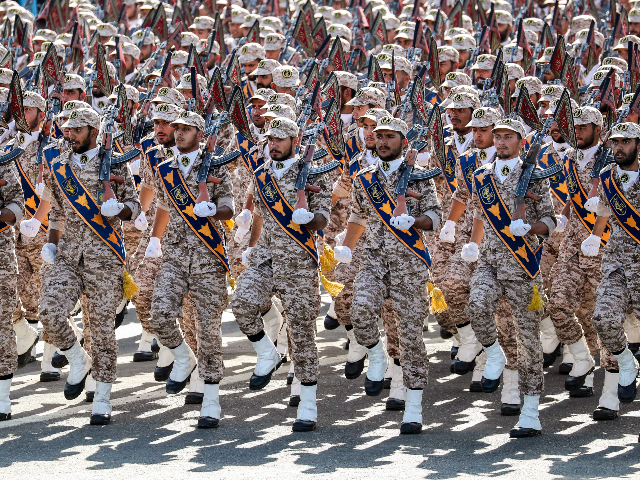Iran’s military spokesperson on Wednesday warned the “slightest mistake” on Israel’s part would compel his country to “level Tel Aviv and Haifa.”
Israel was not even “fully aware” of Iran’s military capabilities, Brig. Gen. Abolfazl Shekarchi said, speaking to state broadcaster IRIB.
“If we notice the slightest mistake on the part of the Zionist regime towards the regime of the Islamic republic, we will strike both the missile bases, which, according to them, are intended to strike Iran, and in the shortest time will level Haifa and Tel Aviv to the ground,” he added.
His remarks came in response to Israel Defense Forces Chief of Staff Aviv Kohavi comments a day earlier he had ordered his forces to lay the groundwork for strikes against Iran. He said:
Iran can decide that it wants to advance to a bomb, either covertly or in a provocative way. In light of this basic analysis, I have ordered the IDF to prepare a number of operational plans, in addition to the existing ones. We are studying these plans and we will develop them over the next year.
The government will of course be the one to decide if they should be used. But these plans must be on the table, in existence and trained for.
Israel’s military chief further warned Iran’s uranium enrichment of up to 20 percent purity could mean the country was “months, maybe even weeks” away from obtaining the bomb.
Earlier this month, Iran announced it was enriching uranium at 20 percent purity.
Once 20 percent purity is reached, it is a short technical step for centrifuges to obtain weapons-grade 90 percent enrichment or even higher.
“No one has any doubt. Iran hopes, wants, identified and built the capabilities necessary to be a military nuclear power. And maybe even use them when it decides it wants to,” Kohavi said in an address to Tel Aviv University’s Institute for National Security Studies.
“There needs to be serious effort so that by the end, there won’t not only not be a bomb but there won’t be an ability to rush to a bomb,” he said.
He warned against President Joe Biden’s plans to reenter the 2015 nuclear deal. Kohavi said:
The Iran of today is not the Iran of 2015 when the deal was signed. Iran now is under enormous pressure — financial pressure, massive inflation, bitterness and unrest in the population, whose salaries have tanked — because of the American sanctions. These pressures must continue. No matter what happens. Anything that releases that pressure gives them oxygen, gives them air and will allow them to continue to violate the current agreement.
A return to the 2015 nuclear agreement, or even if it is a similar accord with several improvements, is a bad thing and it is not the right thing to do from an operational and strategic point of view.
The military leader added rejoining the deal would likely trigger a “nuclear arms race” in the Middle East with other countries, like Saudi Arabia, jostling for the bomb to maintain the balance of power.
Iranian President Hassan Rouhani’s chief of staff Mahmoud Vaezi responded by dismissing Kohavi’s remarks as psychological warfare.
“They talk more and seek psychological warfare, and they have virtually no plan, no ability, and no capability to do so,” Vaezi said.
According to Israeli media, the head of the Mossad spy agency Yossi Cohen is slated to travel to the U.S. to meet with Biden and outline Israel’s demands for a future Iran deal, which would include curtailing its ballistic missile program and its backing of terror proxies like Hezbollah.
Vaezi said he believed the Biden administration would not be as accommodating to Israeli demands as the Trump administration was.
“Of course, some officials of the Zionist regime think that whatever they say, Washington will accept it,” Vaezi said.
He charged former President Donald Trump’s son-in-law and special adviser Jared Kushner of being a “Zionist agent in Washington.”
“But I think the new US administration, like other countries, has its independence,” Vaezi said.
Secretary of State Antony Blinken on Wednesday said the U.S. would only return to the deal after Iran demonstrates compliance.
On Thursday, Iran responded, saying that President Donald Trump’s “maximum failure” meant the U.S. had to take the first step.
“Reality check for Blinken. The US violated JCPOA, blocked food/medicine to Iranians, punished adherence to UNSCR 2231,” Foreign Minister Mohammad Javad Zarif tweeted. “Throughout that sordid mess, Iran abided by JCPOA, only took foreseen remedial measures. Now, who should take 1st step? Never forget Trump’s maximum failure.”

COMMENTS
Please let us know if you're having issues with commenting.